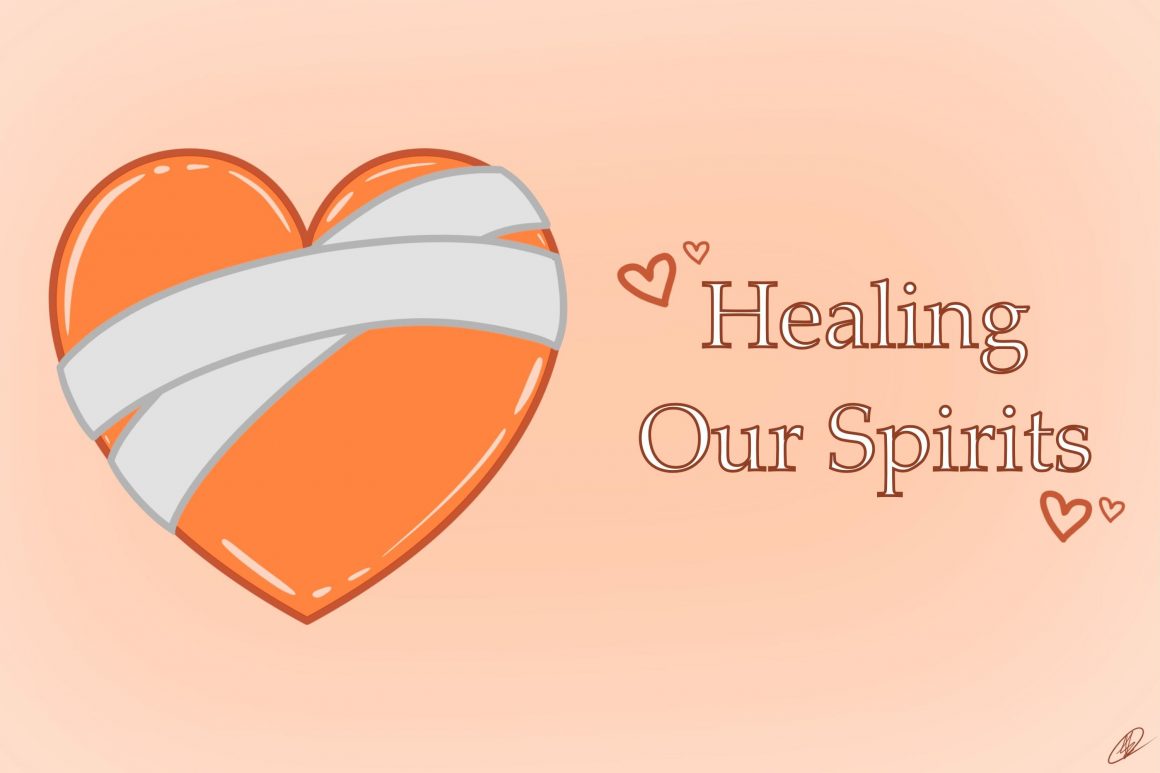
Conversations in Truth: The journey of Indigenous healing and reconciliation
By Anjali Choudhary, February 16 2022—
Marginalized groups have rarely been given the opportunity to share their story and truth in Canada, so creating space for their voices is a crucial step in addressing the past and the creation of a more inclusive future. The University of British Columbia’s (UBC) Office of Respectful Environments, Equity, Diversity and Inclusion (REDI) aims to do exactly that through their Indigenous Initiative Speakers Series.
This now-concluded series sought to continue the crucial conversation on meaningful and impactful truth and reconciliation in Canada. In the “Healing Our Spirits” event, Rod Jeffries — member of the Wakenyahten (Turtle Clan) of the Kanyen’keha:ka Niwakitaro:ten (Mohawk) and founding member of Healing Our Spirit Worldwide — spoke about grief in Indigenous communities. He also spoke about healing from trauma and the importance of voicing personal truth in hopes for personal truth through non-judgemental listening.
Jeffries addressed the concept of healing and said that it is just as important for non-Indigenous allies to be vocal about reconciliation in this country.
“We are the ones that seem to be driving it. I’d like to see a lot more of it being driven by our non-Indigenous friends and organizations and institutions out there,” he said.
Canada has been claiming to pursue truth and reconciliation in an attempt to acknowledge and amend the atrocities of the past. One of the most widespread and harmful actions taken by the Canadian government was the implementation of the residential school system — an assimilatory tool used for decades. Jeffries witnessed these harms and felt their long-lasting impact firsthand.
“Both of my parents went to residential schools — my father went for 11 years and my mother went for two years,” he says. “[My father] had everything taken away from him for 11 years.”
Prior to him going to residential school, he was pretty much raised on the trap line and had a lot of the teachings — those traditional teachings and values that he grew up with — and that connection to the land,” said Jeffries. “Then he was taken away to a residential school — it impacted him a lot and it impacted us as well.”
The impacts to children in the residential school system, and their communities are inconceivably devastating. Described by the Truth and Reconciliation Commission of Canada as a cultural genocide, this system subjected 90-100 per cent of individuals to physical, emotional and sexual abuse.
“My mother had a very difficult life as well —- struggling with who she was and was [sic] very much part of the racism here in southern Ontario,” Jeffries said.
In a study conducted in 2015, the Ontario Human Rights Commission found that racism against Indigenous peoples was still very prevalent throughout the province. The study found that racial profiling and discrimination had become so normalized in some Ontario communities, that it lead to individuals feeling like “second class citizens” on top of dealing with the lasting legacies of pain and trauma in their families.
Speaking to his experience growing up, Jeffries said that having been raised by people who had experienced a lot of trauma was difficult.
“Back in those days, no one talked about trauma.”
Intergenerational trauma is one of many lasting consequences of the residential school system. In fact, Indigenous health experts claim that trauma impacts 5-6 generations before it is healed, especially considering the lack of attention and support given to the families of survivors.
“What trauma does to us is disconnect us totally,” he said. “We’re so disconnected from who we are, what it means to be Indigenous, what our teachings and values are and how trauma has surely impacted us, taken us away from our teachings, values and taken us away from where our ancestors have guided us.”
Noticing a major gap in the emotional and mental resources available to Indigenous peoples speaking about their trauma — especially in the case of residential school survivors — Jeffries aided in the development of the first Indigenous trauma treatment in the country.
“It’s facing that battle, understanding what trauma does to us and then being able to let go [of] the pain and the hurt that has impacted us as individuals — as families and as nations,” he said about witnessing the healing process.
Jeffries’ organization, Healing Our Spirit Worldwide, centres on delivering and developing trauma healing programs. It acts as a space for Indigenous peoples to connect and share their experiences, challenges, resilience and empowerment on their unique paths to healing.
While the healing process is one that many Indigenous people navigate personally, it is undeniable that non-Indigenous Canadians have played a major role in perpetuating that same trauma. Thus, it is also undeniable that we should bear the burden of forging a meaningful pathway to reconciliation.
“Canada needs to look at how they have perpetuated us as ‘the dirty drunks that get everything for nothing’ and how we get treated — there’s just as much work that needs to be done with non-Indigenous Canada, if not more work because we have been the victims of their racism,” said Jeffries. “Why is it up to us to make it right?”
Ultimately, non-Indigenous Canadians need to prioritize both learning the truth and hearing the truth. We must learn the reality of the horrendous past of Canada, and how those attitudes and practices continue to flourish today. To lead the path to reconciliation, action must begin with hearing the truth of Indigenous peoples with the utmost respect, understanding and non-judgement.
Jeffries concludes with a final statement, saying that “when it comes to that reconciliation, that’s a big piece — allowing us to speak our truth and not judging us because of that truth, doing the work to get there — it will happen, but we have to be committed to it […] there is a role we each need to play in reconciliation.”
This article is a part of our Voices section.
